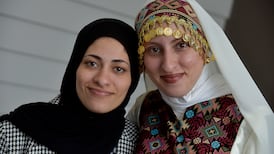Younger staff in Catholic schools are less likely to believe in God or attend religious services, resulting in a declining pool of teachers to deliver faith-based education, according to new research.
The findings are contained in report prepared by an international group of researchers which surveyed 4,000 school staff and teachers in what is the largest-ever study into the realities of Catholic education in Ireland.
At present, almost 90 per cent of primary schools and half of secondary schools have a Catholic patron, while around 69 per cent of the population refer to themselves as being Catholic.
The study finds that the religious education curriculum is, in many instances, not being taught in a comprehensive and professional manner.
Union leadership instructed to renegotiate adult educator deal
‘It’s a double grief’: Teachers talk of difficulties in standing before a class after a miscarriage
School secretaries to strike in September unless pensions issue resolved, union warns
Education infrastructure another casualty of Gaza war, TUI conference hears
There is also widespread ignorance around key documents which set out the vision and purpose of Catholic schools, with up to 80 per cent of school staff either unsure or not aware of these publications.
The significance of age as a factor in the religiosity of school staff is clear in surveys on belief in God and attendance at religious services.
While the proportion of school staff who say they believe in God is more than 90 per cent among the over-50s, it falls to 67 per cent among those under the age of 30.
Similarly, the proportion of self-declared Catholics who attend a religious service once a week, as required by Catholic Church teaching, is 41 per cent, while among the under 40s it falls to 18 per cent.
At primary level, more than half of teachers in Catholic schools “do not believe in a personal God” and under half, 49 per cent, state that they are “not committed and practising Catholics”.
The report notes that most children in Catholic primary schools are being prepared for the sacraments by staff who describe themselves as being other than practising Catholics, raising questions over children’s faith formation and sacramental preparation.
It says there are similar challenges in Catholic secondary schools give that one third of religion teachers are not committed and practising Catholics, even though developing faith is a central educational aim of their schools.
The data indicates that Catholic schools will face growing challenges should they wish to appoint Catholic principals as vacancies arise.
While two thirds of Catholic primary principals described themselves as committed and practising Catholics, the corresponding figure among under-50s is 44 per cent.
The report notes that even if there is a sustained or increased demand for places in Catholic education, schools are facing a “declining and more diluted pool of Catholics from which to draw both voluntary and professional personnel”.
The study was undertaken by a team of academic researchers based at Mary Immaculate College and the Mater Dei Centre for Catholic Education, as part of the Global Researchers Advancing Catholic Education project.
Dr Daniel O’Connell, assistant professor of religious education at MIC, said one aspect of education which needs to change in primary education is the number of schools currently with a Catholic patron.
“Many dioceses don’t have the capacity to properly support and resource their Catholic schools, in particular, the teaching of the patron’s programme [religious education],” he said.
He said some sort of “structured, sustained continual professional development” was essential for staff in Catholic schools and “this needs to happen as a matter of urgency.”
Bishop of Ossory Niall Col said many of the findings were striking and “will not come as surprise to many” given that society is becoming increasingly secular.
However, he said good news around the excellence of faith-based school and their levels of academic, personal and social and spiritual achievement was an “underworked theme” in public discourse.
“More often than not the target of hostile voices in politics and media, Catholic schools here are in fact quietly to the fore in the ways they work for better levels of inclusion and participation, not least in the ways they welcome and promote intercultural and interreligious education.”
While the report pointed to an “urgent” need for training and support for staff around the identity and ethos of Catholic schools, he said he remained positive about their future role in developing students as “both citizens and disciples”.
- Follow The Irish Times education section on Facebook and X (Twitter) and stay up to date














